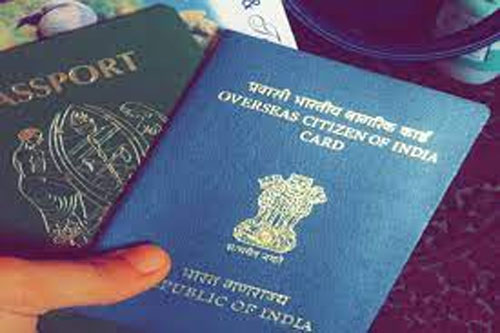Daijiworld Media Network - New Delhi
New Delhi, Aug 12: The Ministry of Home Affairs (MHA) has introduced tighter regulations for Overseas Citizens of India (OCI), allowing for cancellation of OCI registration if cardholders are convicted of serious crimes or formally charge-sheeted in grave offences.
In a gazette notification issued under clause (da) of Section 7D of the Citizenship Act, 1955, the government laid out two new triggers for cancellation:
• If an OCI holder is sentenced to imprisonment for two years or more.
• If an OCI holder is charge-sheeted for an offence punishable by seven years or more.

The notification reads:
“An Overseas Citizen of India (OCI) registration shall be liable to get cancelled when a person has been sentenced to imprisonment for a term of not less than two years or has been charge-sheeted for an offence entailing punishment of imprisonment for seven years or more.”
This move significantly tightens the scrutiny on OCI cardholders, extending beyond convictions to include individuals who are only formally accused but not yet tried.
A Shift in Approach
The OCI scheme, which began in 2005, allows foreign nationals of Indian origin to enter and reside in India without a visa, offering long-term stay and multiple-entry benefits. However, it specifically excludes former or current citizens of Pakistan, Bangladesh, and any country notified by the Indian government.
Previously, cancellation of OCI cards was typically linked to convictions. The inclusion of charge-sheeting as grounds for cancellation signals a more pre-emptive approach, raising questions among legal experts about potential violations of due process, as a charge-sheet does not equate to guilt.
Implications for Cardholders
Legal analysts point out that the amendment may have far-reaching effects, particularly for those facing legal proceedings for:
• White-collar crimes
• Organised criminal activities
• Serious violations under Indian Penal laws
The measure is seen as a move to align the privileges of OCI holders with higher standards of conduct, reflecting India’s growing concerns around misuse of the scheme by individuals with serious legal baggage.
The MHA's decision may trigger increased legal challenges and scrutiny in global Indian diaspora communities, especially among those already navigating complex legal situations in India.